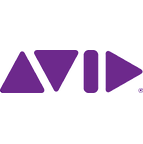Summer is almost here!
And even if it’s true that ‘rough winds do shake the darling buds of May’, after a whole year of COVID 19 and pandemic we’ll take it.
Life was on pause before. Now is the time to unpause and launch your plan for world domination in media production and film! And what better way to evolve into this next chapter of your life than with an Associate of Science Degree in Digital Media?

Our new Associate Degree in Digital Media gives each student a fantastic equipment kit (valued at $10,000+), yours to keep for life. The list includes a Blackmagic 6K camera, Canon M50 camera, Sound Recording Equipment, Lighting Kit, etc. Take a look at the full equipment list here.
May Programs
Our May programs have literally just begun and today, May 13th 2021, our new group of media students are all boldly moving on to their third day of classes!
All have chosen to embark on this new year of rigorous training in media production and filmmaking techniques.
Students who choose to study at Digital Film Academy can opt for our New York City or Atlanta (Georgia) locations. The Associate of Science Degree Classes can be taken from either campus location. Currently our classes are starting online with the hope and expectation that we will be back to full in-person classes in September (to be confirmed).
Get the proper training in Cinematography, Sound Recording, Directing, Video Editing, Screenwriting and all aspects of professional media training you always wanted.
Interested to jump on board and join our May classes? There is still time to join! Digital Film Academy has a 14-day late start period. For any classes you have missed we’ll give you access to video recordings. No one begins at a disadvantage.
Later today – Thursday May 13th at 1 p.m. EST – we’ll be holding our next Online Open House / Free Demo Class. Jump on our Zoom call and join the group: watch, listen, ask questions. Add your name to the guest list here: https://www.digitalfilmacademy.edu/open-house/.





























